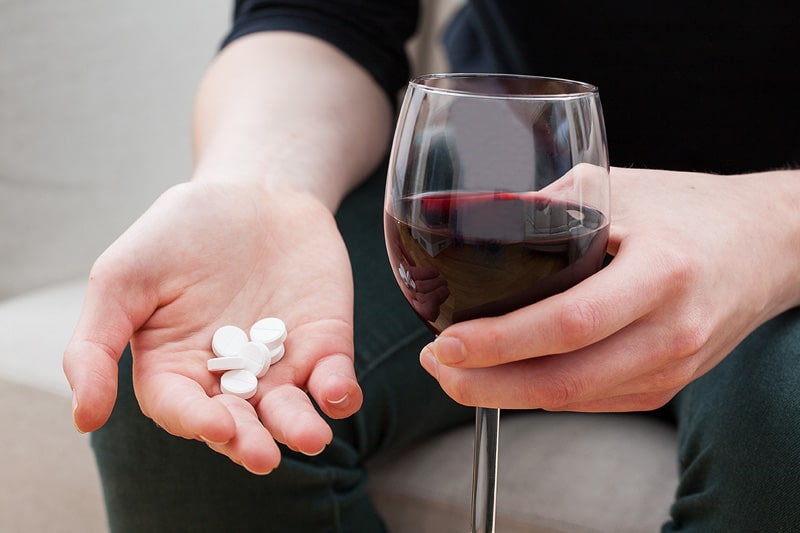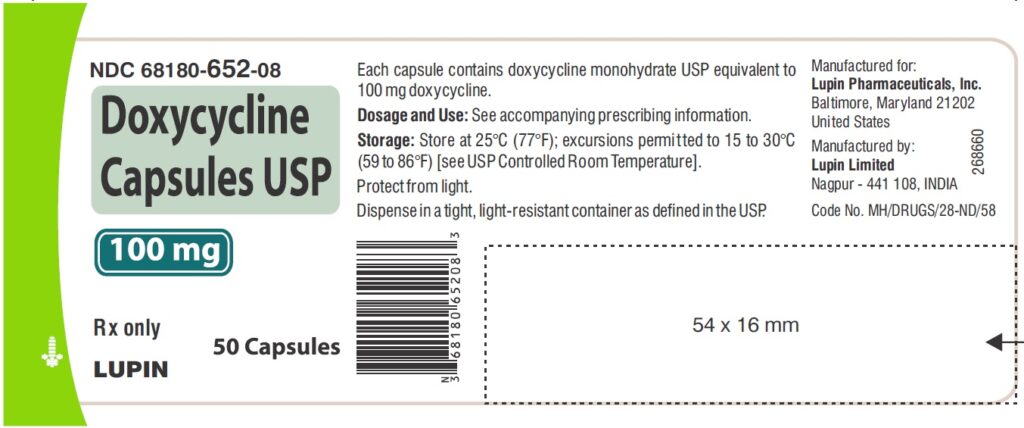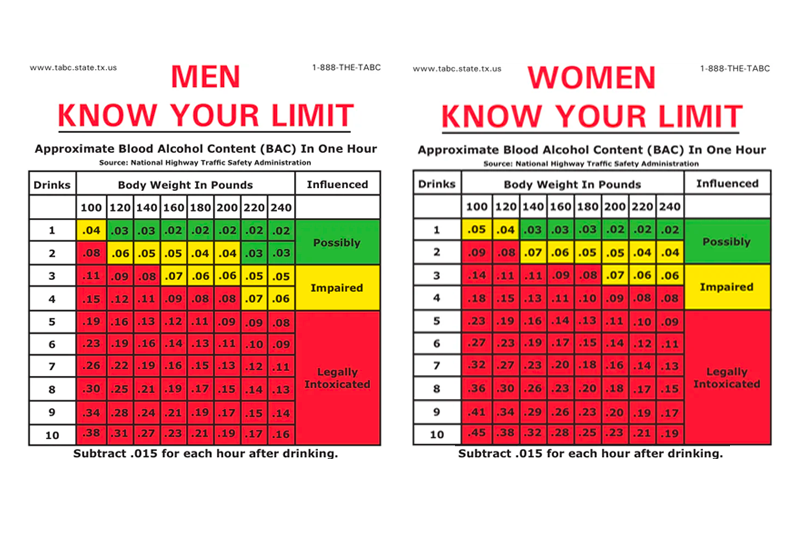
Doxycycline is a versatile antibiotic belonging to the tetracycline family, known for its effectiveness against a wide array of bacteria. If you’re grappling with infections of the skin, respiratory system, or perhaps facing certain sexually transmitted infections (STIs), doxycycline, a well-known drug within the class of tetracyclines, might be your go-to remedy.
Introduction to Doxycycline and Alcohol
Understanding Doxycycline: A Tetracycline Antibiotic
Its efficacy extends to treating STIs like chlamydia, gonorrhea, and even syphilis, especially when penicillin is not an option due to allergies. Indeed, those with a penicillin allergy need alternative antibiotics and doxycycline’s efficacy becomes crucial in these situations.
When taken according to healthcare guidelines, which consider factors like infection duration, doxycycline is highly effective. Moreover, for individuals dealing with rosacea, doxycycline helps manage the inflammation that contributes to the skin rash, thereby improving patients’ quality of life. Available in various forms, including capsules and tablets, healthcare providers will calibrate your dosage based on the infection’s nature and severity, customizing the doxycycline dosage and duration to each case.
So, can you drink while on doxycycline? It’s important to follow the specific instructions for use when utilizing doxycycline products to ensure the best outcomes. However, it’s critical to be aware that the misuse of doxycycline can contribute to antibiotic resistance – a growing global health challenge that highlights the importance of adhering to prescribed treatment courses.
How Does Doxycycline Work?
Doxycycline is a tetracycline antibiotic that works by inhibiting the growth and spread of bacteria that cause infections. It does this by binding to the bacterial ribosome, which is responsible for protein synthesis. By preventing the bacteria from producing proteins, doxycycline effectively stops the bacteria from growing and replicating, allowing the body’s immune system to fight off the infection.
Concerns about Mixing Antibiotics and Alcohol
When you’re on antibiotics, like doxycycline, reaching for that glass of wine or beer might not be the wisest choice. Why? Beyond the immediate concerns, combining alcohol with medications, particularly for those struggling with alcohol addiction or engaging in binge drinking, can exacerbate health complications and hinders recovery efforts. Alcohol can mess with how your body handles the medication — you might either metabolize the drug too quickly or too slowly. What’s more, alcohol may increase the likelihood of adverse reactions or diminish the antibiotic’s ability to wage war against bacteria.
Doctors often caution patients about the possible negative dance alcohol and antibiotics can perform together, emphasizing the importance of understanding antibiotic interactions. This advice is especially crucial for individuals who have been frequent drinkers of alcoholic beverages, as their body’s response to medications could be unpredictably altered. This is not just about effectiveness; it’s also concerns over your comfort, as gastrointestinal distress is a known possible encore performance when mixing these two. So if you’re experiencing side effects like nausea from your antibiotics, alcohol might just turn up the volume on those unpleasant feelings.
Still, while many antibiotics do come with a “no alcohol” recommendation, understand that the specifics can vary depending on the type of antibiotic. Always read the prescription label and talk to your pharmacist or doctor. For those managing alcohol addiction, it’s important to heed these guidelines even more strictly—they’ll give you the beat on how alcohol could influence your treatment with doxycycline and support a healthier recovery trajectory.
The Effects of Alcohol on Doxycycline Treatment
Impact on Antibiotic Efficacy
Drinking alcohol while on doxycycline could potentially hamper the medication’s effectiveness. For instance, although not a universal rule, some studies suggest that alcohol can decrease the absorption of doxycycline. This means that the medication might not reach the full concentration needed in your bloodstream to effectively combat the infection.
Also noteworthy is how alcohol may impact the body’s immune response. While you’re counting on antibiotics to do the heavy lifting against pathogens, your immune system is also a key player in this battle. Alcohol has been known to have immune-suppressing effects, which could make it harder for your body to support the antibiotic’s bacteria-fighting mission.
So, if you’re considering a night out with friends, remember that while the social aspect is refreshing, alcohol might just dull the sharp edge doxycycline offers in your fight against infection.
It’s a balancing act of risks and benefits, and sticking to the safe side means giving your body the best chance to recover swiftly and thoroughly. Always prioritize your health and follow medical advice to uphold the efficacy of your antibiotics.
Potential Risks and Side Effects
Mixing doxycycline and alcohol raises not just one red flag, but a series of concerns related to potential risks and side effects. Remember those common side effects of doxycycline? They include rashes, digestive issues, and even inflammatory problems. Now, envision adding alcohol into the mix — it can magnify these not-so-fun reactions, making you feel worse instead of better.
Not to mention, alcohol is a well-known irritant to the stomach lining. Pair it with doxycycline, which can also cause stomach distress, and you might find yourself dealing with increased stomach pain, acid reflux, or even ulcers — definitely not ingredients for a good day.
What about more severe side effects? In rare cases, alcohol can lead to severe reactions when taken with doxycycline. If you experience symptoms like trouble breathing, severe headaches, or intense skin reactions, it’s crucial to seek medical attention immediately.
Always keep in mind that while side effects can vary from person to person, minimizing risks is always the safer route. It’s better to forego the alcohol than to deal with complications that might land you back in bed, or worse, the hospital.
The Impact of Alcohol Abuse on Doxycycline Effectiveness
Alcohol abuse can have a significant impact on the effectiveness of doxycycline. Chronic alcohol consumption can lead to liver damage, which can affect the way the body metabolizes doxycycline. This can result in reduced efficacy of the medication, making it less effective in treating bacterial infections. Additionally, alcohol abuse can also lead to malnutrition, which can further compromise the body’s ability to fight off infections.
What Experts Say about Alcohol and Doxycycline
Medical Guidance on Antibiotic Use
Now, let’s get some wisdom from the medical experts. They insist that following prescribed guidelines for antibiotic use—not just with doxycycline but with any antibiotic—is crucial for your safety and health. You might wonder, ‘Can a small sip really be that bad?’ Well, when it comes to your health, it’s best not to gamble.
Healthcare professionals encourage you to adhere to timings, dosages, and of course, lifestyle habits like avoiding alcohol while on medication. This ensures that the drug functions at its peak, giving you the best shot at a full recovery without unnecessary complications.
Furthermore, don’t hesitate to reach out to your healthcare provider if you’re unsure about any aspect of your treatment. They can demystify the instructions and guide you towards habits and choices that complement your antibiotic therapy. And remember, a course of antibiotics is not a ‘one size fits all’ — different conditions require specific treatment practices.
Take medical guidance seriously; they’re not just giving suggestions but equipping you with tried-and-tested wisdom for a healthy comeback from illness.
Severity of Conditions Treated with Doxycycline
Considering the array of health issues doxycycline can tackle, it’s essential to gauge the severity of the conditions it treats. This antibiotic has a track record of targeting not just any ordinary cough or pimple but rather profound afflictions like pneumonia, Lyme disease, certain sexually transmitted diseases, and urinary tract infections. It’s the heavy artillery in your medicinal arsenal.
Understand that when you’re using doxycycline for severe infections, the stakes are higher and following the prescribed regimen becomes even more critical. Alcohol can muddy the healing waters, so to speak, and in severe cases, this can lead to prolonged illness or even complications that could have been avoided.
Imagine the diligence required when using doxycycline as a prophylactic for malaria; it’s about prevention, not just cure. One misstep with alcohol could reduce its protective effects, leaving you vulnerable in areas where malaria is a serious threat.
So consider the severity of your condition and respect the role doxycycline plays. It’s the guardian of your well-being, and mixing it with alcohol might weaken its defense. Keep your guard up and commit to the treatment plan your healthcare provider has designed for you.
Safe Practices for Doxycycline Consumption
Guidelines for Taking Doxycycline
When prescribed doxycycline, adhering to the guidelines ensures you harness the full potential of this antibiotic. Whether combating infections or fending off malaria, here’s how to take it: once or twice a day, with a generous glass of water to help it on its journey. And remember, don’t break, crush, or chew those capsules or tablets; they’re designed to be swallowed whole for a reason.
If your stomach protests with doxycycline on an empty belly, try taking it with food or milk — it might just make peace with your tummy. However, do this only after a chat with your doctor or pharmacist to confirm the best approach for your situation. Some doxycycline formulations can be affected by dairy, so it’s essential to get professional input.
Particularly with the delayed-release tablets, keep them intact. But let’s say you’re in a pickle and can’t swallow them; some can be carefully broken and sprinkled on a spoonful of applesauce — just avoid hot foods as they could alter the medication’s release pattern. Once mixed, down it goes immediately! No chewing, and definitely don’t let it wait around.

Shake the liquid suspension thoroughly before each use, making sure the medication is evenly distributed. If your battle is with malaria, strategically start doxycycline a couple of days before entering the fray (malaria region) and continue four weeks after your return. Don’t extend your doxycycline use for anti-malaria beyond four months unless directed by your healthcare provider.
Even if you’re feeling better, complete the entire prescribed course to ensure all the bacteria are knocked out. Cutting corners can lead to antibiotic resistance, making it harder to treat infections in the future.
Always take doxycycline exactly as directed — this antibiotic is a pledge to your health, and following these guidelines is your part of the bargain.
Know Your Limits: Alcohol Intake While on Medication
It’s best to know your limitations with alcohol consumption, especially while on medication. If doxycycline is part of your daily routine, it might be time to put the cork on alcohol. The definition of moderation from the National Institute on Alcohol Abuse and Alcoholism sets the bar at one drink per day for women and up to two for men. But if antibiotics enter the equation, consider those limits more as a guideline for your general lifestyle than a daily allowance while medicated.
Taking a step back from alcohol entirely when under doxycycline treatment won’t only help in avoiding potential side effects but also gives the medication a clear field to work its magic. It’s not about being overly cautious; it’s about being smart with your health and recovery—so, shelving the booze is a safer bet.
If you’ve accidentally had a tipple while on doxycycline or have concerns about your alcohol consumption, reaching out to your healthcare provider is the best course of action. They can offer customized advice based on your health status and medical history.

Remember, every body reacts differently, and when it comes to mixing alcohol and medicine, there are no guaranteed safe amounts. It’s always better to err on the side of caution and keep those drinks on hold until your treatment concludes and your healthcare provider gives the green light.
Addressing Common Questions and Misconceptions
Can a Small Amount of Alcohol Affect Doxycycline?
If you’re wondering about moderation, a small amount of alcohol probably won’t send your doxycycline treatment off the rails. For most people, an occasional drink may not dramatically impact the medication’s effectiveness or lead to severe side effects. However, each person metabolizes drugs and alcohol differently, so what’s a minor blip for one might be trouble for another.
The important takeaway here is that while a small amount of alcohol isn’t typically life-threatening, it’s still best to play it safe. The fewer variables in your treatment equation, the more predictable and smooth your path to recovery will be. If you’ve already had a drink, switching to water and abstaining for the remainder of your treatment is your best bet. Keep in touch with your healthcare provider, especially if you notice any unusual reactions.
In sum, while an occasional small drink might not be an immediate cause for concern, being cautious and abstaining altogether is the gold standard while on doxycycline.
How Long Should You Wait to Drink After Doxycycline?
You might be itching to raise a toast once your doxycycline course is over, but patience is a virtue worth practicing even then. The conservative benchmark to resume your rendezvous with alcohol is at least 48 hours after the final dose to ensure the antibiotic is effectively out of your system. Thanks to doxycycline’s half-life of 18 to 22 hours, following this time frame minimizes the risk of interactions and side effects.
To put it in perspective, think of a full clearance as a clean slate for your body — a state where you can indulge in a drink without fretting about the remnants of medication muddling things up. Some might take comfort in stretching the wait to a full five days after the last dose, ensuring that doxycycline’s effects have definitely waned.
Ultimately, your healthcare provider’s guidance is the lighthouse guiding you through the fog — they can tailor the safest wait based on your unique health landscape. So when in doubt, shoot them a message or give them a call. It’s always best to have that personal clearance before you clink glasses.
Alternatives and Precautions
Seeking Alternative Acne Treatments
If you’ve got acne and you’re not keen on pausing your social sips, you don’t necessarily have to forgo treatment. Luckily, the acne fighting brigade has a diverse roster, and topical options can be your allies without requiring any changes to your happy hour habits. These include agents like tretinoin, tazarotene, adapalene, salicylic acid, benzoyl peroxide, and the newer kid on the block, Winlevi.
These alternatives target acne right at the source—on the skin—without the systemic effects of oral antibiotics like doxycycline. This means they don’t enter your bloodstream in the same way, and thus, they peacefully coexist with that occasional cocktail or glass of wine.
However, before making a switch or starting a treatment, a virtual consultation with an online dermatologist will set you on the right path. They can evaluate your skin condition, prescribe the right topical medication, and discuss how to balance treatments with your lifestyle.
Plus, with these topical treatments coming to the rescue, your skincare routine can continue uninterrupted regardless of the social festivities. Just a heads-up, while these topicals are generally more tolerant of alcohol, always check with your healthcare provider for individual advice tailored to your needs.
Importance of Professional Medical Advice
Seeking and sticking to professional medical advice can’t be emphasized enough, especially when it comes to medication like doxycycline. It’s important to bridge the distance between you and your healthcare provider by asking questions, expressing concerns, and discussing medication management, including alcohol’s role.
Healthcare professionals are there to customize your treatment plan, taking into account unique variables such as your medical history, other medications you may be on, and your lifestyle. They use their expert knowledge to propel you towards the best outcomes, steering clear of avoidable complications.
In a time when telehealth has gained momentum, access to healthcare advice has become more convenient than ever. You have the luxury to start consultations and obtain prescriptions online, placing expert medical care at your fingertips.
So, give a nod to professionalism and reach out to healthcare providers for guidance every step of the way. It’s a partnership where you’re empowered to make informed decisions about your treatment, aligning with the axiom that it’s better to be safe than sorry.
Liver Problems and Doxycycline
Doxycycline can cause liver problems, especially when taken in combination with alcohol. The liver is responsible for metabolizing doxycycline, and excessive alcohol consumption can put additional strain on the liver, leading to liver damage. This can result in elevated liver enzymes, jaundice, and liver inflammation. It is essential to avoid excessive alcohol consumption while taking doxycycline to minimize the risk of liver problems.
Struggling with Alcohol Abuse?
If you are struggling with alcohol abuse, it is essential to seek help. Alcohol abuse can have serious consequences on your health, including liver damage, pancreatitis, and certain types of cancer. Additionally, alcohol abuse can also affect the effectiveness of medications like doxycycline, making it less effective in treating bacterial infections. If you are struggling with alcohol abuse, talk to your healthcare provider about getting help. They can provide you with resources and support to help you overcome your addiction and live a healthier life.
FAQs
Is it ever safe to drink alcohol while taking doxycycline?
It might be generally advised to skip the alcohol while on doxycycline, but the occasional drink in moderation doesn’t automatically spell disaster for everyone. If you’re not someone who regularly drinks heavily and you don’t have liver problems, then a single, small alcoholic drink may not seriously impact the treatment. However, it’s always safest to avoid alcohol altogether until you’re finished with your medication. When in doubt, check with a healthcare professional for personalized advice.
Can drinking while on doxycycline negate its benefits?
Drinking alcohol while on doxycycline could lessen its effectiveness, yes. Alcohol may interfere with how your body absorbs the medication, which potentially decreases its ability to fight the infection. To fully benefit from doxycycline, it’s best to abstain from drinking until your course of treatment is complete. Consult your healthcare provider for advice tailored to your specific health needs.
Are there any specific types of alcohol that are less harmful when taking doxycycline?
There’s no type of alcohol that’s considered ‘less harmful’ when taking doxycycline. The effects of alcohol on medications do not discriminate by beverage type. Whether it’s wine, beer, or spirits, your best bet is to avoid all alcoholic drinks while on doxycycline to prevent any possible interaction and ensure maximum effectiveness of the antibiotic. If you need personalized advice, talk to your healthcare provider.
What should I do if I consumed alcohol by accident while on doxycycline?
If you’ve accidentally consumed alcohol while on doxycycline, don’t panic. Cease any further alcohol intake immediately and drink plenty of water to stay hydrated. Keep an eye out for any unusual side effects and seek medical advice if you’re worried or experience any adverse reactions. Most importantly, continue taking your medication as prescribed and discuss any concerns with your healthcare provider.

Mitchell Grant Cohen
Dr. Mitchell G. Cohen is a board-certified Internal Medicine specialist with over 34 years of experience in patient-centered healthcare. A graduate of Hahnemann University School of Medicine, Dr. Cohen completed his internship at the University Health Center of Pittsburgh, where he gained invaluable hands-on experience. He is also a certified addiction specialist, holding membership with the American Society of Addiction Medicine (ASAM).
Currently based in Nashua, NH, Dr. Cohen is affiliated with Saint Joseph Hospital, where he provides comprehensive care focusing on both internal medicine and addiction treatment. His expertise includes prevention, diagnosis, and management of adult diseases, as well as specialized care for individuals facing substance use disorders.
Dr. Cohen is committed to fostering open communication, ensuring his patients are fully informed and empowered to make confident decisions about their health and treatment options.




